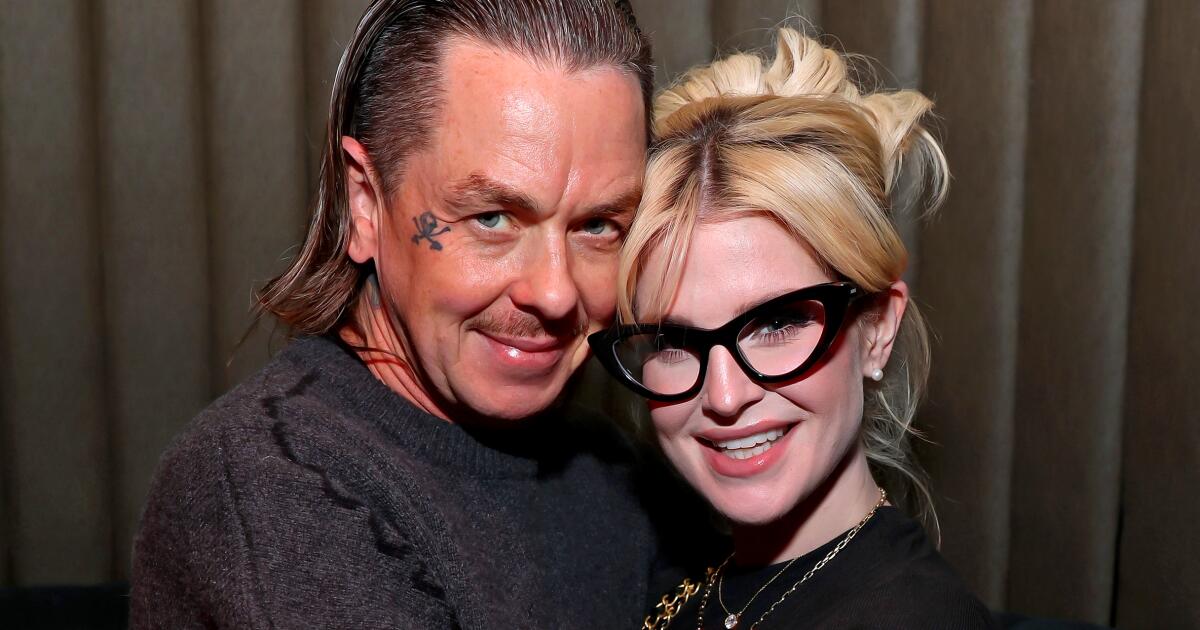This entrepreneur spots celebrity deepfakes. Can he help average Joes too?

Celebrities are all too familiar with the world of deepfakes, the colloquial term for artificial intelligence-generated videos that depict actors and other Hollywood talent falsely doing or saying things that they never agreed to.
To protect themselves, actors including Steve Harvey, Beverly Hills talent agency WME and studios have enlisted the help of Vermillio, a Chicago-based company that tracks famous people’s digital likenesses and intellectual property online. Depending on what its clients want, it can have the material taken down .
But as AI technology continues to improve and becomes more widely available to the general public, regular people are getting scammed too.
Now, Vermillio says it is offering a version of its service for free to everyone.
The move comes as more and more convincing deepfakes continue to proliferate online, making it difficult for social media sites to police such activity. In 2019, there were about 18,000 deepfakes globally and this year, there have been roughly 2 trillion generative creations, said Vermillio Chief Executive and co-founder Dan Neely.
That leaves average Joes at a growing risk of being impersonated online, with little recourse.
“We can’t wait for governments to solve this problem,” Neely said. “We can’t wait for legislators to solve this problem. We can’t wait for other people to solve this problem. We just said it’s the right thing to do, so we should just be doing it.”
With this move, Vermillo is adopting a classic “freemium” model — offering partial service for no charge and up-selling for additional features.
Here’s how it works.
Using its TraceID technology, the company flags problematic content. For paying clients, Vermillio can send take-down requests to sites such as YouTube or Instagram. Additionally, Vermillio says clients can monetize their data by licensing it.
People who sign up for the free version enter information about themselves such as their name, date of birth and social media handles on sites including Instagram or YouTube.
Then, Vermillio will use that information to build a “likeness model” to scour the Internet for potential red flags involving the user’s identity. Then Vermillio alerts the user to what exists online. For example, if someone has created a fake Instagram account of that user, Vermillio would flag that.
Users are notified of this type of content and can decide for themselves what they would like to allow, or take action to remove. If the user wants Vermillio to request take-downs of the inappropriate content, users would need to upgrade to a paid account, which starts at $10 a month and includes five monthly take down requests.
While many social media platforms give an option to users to flag problematic content, Vermillio said it is faster and more effective than having users go directly to YouTube or Instagram to rectify the situation. It has built a network of partners and can escalate take-downs in as quickly as an hour, the company said.
Vermillio executives said some real life examples of deep fakes include celebrity voices used to raise money for fake charities or terrorist organizations, and high school students creating fake pornography of their classmates.
“It’s affecting regular people in the sense that they’re getting scammed by deep fakes, but it’s also affecting teenagers, so people need to understand where they stand,” said Kathleen Grace, Vermillio’s chief strategy officer. “This is an easy way for them to do that.”
While fake social media profiles have existed for years, “generative AI just poured gasoline on it,” Grace said.
The company said hundreds of people use Vermillio’s services, but didn’t specify numbers. By the end of the year, the company expects to have thousands.
Neely said the company isn’t profitable and declined to share revenue figures. Time magazine reported that revenue from Vermillio’s TraceID has increased tenfold from April 2023 to April 2024. The company makes money through the paid versions of its service and licensing. Vermillio has raised $24 million in funding.
Hollywood companies and talent are navigating artificial intelligence in different ways.
Groups such as performers guild SAG-AFTRA are pushing for more state and federal protections against deepfakes. Some celebrities such as Academy Award-winning supporting actor Jamie Lee Curtis struggled to get a fake ad of her on Instagram taken down showing her falsely endorsing a dental product.
WME announced a partnership with Vermillio last year.
“The scale of the issue is extraordinary, so if you’re a rights holder, just trying to understand how much of these AI outputs are based on or utilized my data, my IP in some way, shape or form, is a massive need,” said Chris Jacquemin, WME’s head of digital strategy.
“They’ve obviously proven that TraceID can protect the most important, most high profile public figures in the world,” Jacquemin added. “Opening it up in a much broader application, I think is a huge step forward in really democratizing how anybody can start to police use of their likeness with respect to AI and AI platforms.”





